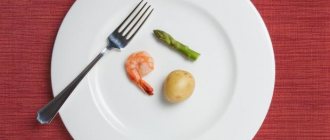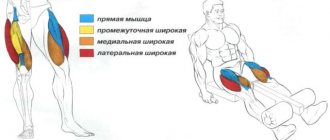Do not be distructed
Are you used to having lunch at work “on the run”, without interrupting the work process, and having dinner in front of the TV or reading a book? By being distracted by other stimuli, you are more likely to eat more than you need and “forget” to think that these candies are already unnecessary. It's time to get rid of this habit - it's best to eat in silence.
Photo: istockphoto.com
There is a constant desire - where does it come from?
Photo by Andres Ayrton: Pexels
There is a physiological feeling of hunger and the desire to satisfy it. You are hungry and eat until you are full.
Sometimes a person faces medical problems. Hormonal imbalances and parasitosis lead to a constant feeling of hunger, the desire to eat, and the inability to feel full.
But there is a group of problems associated with the desire to eat, but they have no physiological reasons. You just ate lunch - first course, second course, dessert. 10 minutes pass, and you want to eat again.
At the same time, you cannot assess how much the desire is related to the actual need. Most likely, your body is full, and the sensations you experience are associated with psychological problems.
Among these problems:
- Prolonged stress.
Anxiety and tension experienced over a long period of time are reduced by eating. Sweets, snacks or coffee breaks that have symbolic meaning are especially helpful. For example, the habit of drinking coffee, eating cookies, when you have completed some task - wrote a letter, put the child to bed, went to the store.
How to force yourself to lose weight?
In a normal situation, you would simply rest or immediately continue working, but if you are stressed, you need to stop and mark the milestone you have passed. After some time, you will notice that you no longer need to complete things, you just eat constantly.
- A strong but short-term stressful state forces you to quickly swallow food without feeling taste or quantity.
After such a reception, you instantly forget that you ate and you may want to eat again.
- Idleness.
Food is a great remedy for doing nothing. It takes time to prepare it; you can have it as a snack, treat it to others, just try it, experiment with flavors. In the end, you just find excuses to eat constantly.
- Anxiety.
Few people think that when experiencing anxiety, a person becomes calmer if he eats. This natural mechanism is associated with the physiological reaction of fear and the risk of not finding food or losing it.
- Expectation.
The problem is also associated with feelings of anxiety. You can't occupy yourself with anything; food takes up your time and thoughts.
- The desire to harm yourself.
An unconscious or conscious desire to make yourself worse, to make you suffer, to experience pain. Appears due to failure, stress, feeling of uselessness, fear of the future, low self-esteem.
Whatever the reason, the result is the same - if you don’t find it and solve it, you will continue to eat constantly.
Small plates and cutlery
The brain is quite easy to trick if you use small plates and cutlery. A small plate full of food is perceived as a portion sufficient to satiate, in contrast to a large plate that is only half filled. In addition, there is a great temptation to fill a large plate, while you physically cannot fit as much food on a small one. Scientists from Cornell and Groningen universities found that people usually fill their dishes 70%, regardless of their size.
Similarly with cutlery - the brain erases the differences between 10 small and large spoons, for example, ice cream; the quantity is important to it, not the volume. Small appliances will help you avoid overeating. Another nice fact is that most people can easily eat 20% more or less than their usual serving and not even notice it. Small plates and utensils will help you use this feature of the body.
Why am I gaining weight in quarantine? 7 Main Reasons for Weight Gain
Add more protein
High-protein foods help control appetite A. Missimer, DM DiMarco, CJ Andersen et al. Consuming two eggs per day, as compared to an oatmeal breakfast, decreases plasma ghrelin while maintaining the LDL/HDL ratio / Nutrients . Make a High Protein Breakfast HJ Leidy, LC Ortinau, SM Douglas, HA Hoertel. Beneficial effects of a higher-protein breakfast on the appetitive, hormonal, and neural signals controlling energy intake regulation in overweight/obese, “breakfast-skipping,” late-adolescent girls / American Journal of Clinical Nutrition, and you won’t remember about eating until lunch itself.
Include protein in every meal, add eggs, chicken, milk and cottage cheese, red fish, tuna, and legumes to your diet. In addition to your main meals, you can prepare high-protein snacks.
Colored dishes
It has long been known that certain colors can awaken or, conversely, suppress appetite. Armed with this knowledge, you can choose dishes. For example, the color red (as well as yellow, orange, pink) causes a strong feeling of hunger. On plates in neutral shades - white or gray, the food also looks appetizing, and you want to eat more.
To reduce appetite, it is better to use dishes of blue, cyan, and violet colors. You can go further - use a blue tablecloth or even add such shades to the kitchen or other room where you eat more often.
Photo: istockphoto.com
Eat slowly
The brain receives a signal with a delay that your stomach is already full and you are full, so try to prolong the pleasure and eat slowly. You shouldn’t pounce on food and absorb it at cosmic speed, as you are more likely to overeat - in such cases, the brain simply does not have the ability to signal satiety in a timely manner. It is better to take food in small pieces and chew them thoroughly before starting the next one.
Eating more slowly will also help to take breaks - put down your fork or spoon to drink water or just stretch. In addition, you should listen to your body and do not sit at the table if you are not hungry.
How to overcome bulimia and stop overeating?
How to get rid of gluttony? To do this, I want to offer some important recommendations that you need to follow. Without following these rules, nothing will work:
- Create a diet for yourself and strictly follow it! Eat 3 times a day. With breaks between meals for 4-5 hours.
- Drink enough water. Usually, most people feel empty in their stomach after two hours. But this is not real hunger, it is a long-term habit. In fact, the stomach was just empty of food. Drink a glass of clean water. And this false feeling of hunger will pass. After half an hour, drink another glass of water (but not compote, tea, coffee or soda). This way you can maintain an interval of 4-5 hours without snacking. Now you are on the path to forming a healthy habit - living without snacking. Over time, your body will readjust. And you will easily observe the cherished interval, and your stomach will be able to fully rest.
- Never skip a meal. A full breakfast is especially important. Not a sandwich with tea, but at least porridge with salad. Today, many people eat for dinner what they would have eaten for breakfast. Remember the saying: “War is war, but lunch is on schedule.” This is especially true for breakfast. Each of the three meals should be plentiful and satisfying. But least of all this applies to dinner. Eat plenty, understanding that the next meal will only be in 4-5 hours.
- Remember that food that takes longer to prepare will take longer to digest, which means you will not be left feeling full for a long time. For example, recent studies by nutritionists at one of the US universities have confirmed this pattern. Students who ate oatmeal were more likely to feel hungry and want to snack than the same students who ate whole oatmeal porridge. As a result, it was concluded that fast food provokes snacking and gluttony. Therefore, time spent preparing unrefined foods is time invested in our health.
- Learn to cope with stress without food. Physical activity provides good emotional stability. You can do morning exercises and strength exercises (pull-ups, push-ups, abs, squats), run, including jogging, running in place. In this case, Nordic walking, cycling, gardening, and even cleaning the apartment will be effective! Because during physical activity, our body produces substances that contribute to a feeling of satisfaction and good mood and even regulate our appetite. Find like-minded people and study together!
- No strict diets! Any dietary restrictions can set the stage for your bulimia attacks. Eat a balanced diet, but eat in moderation. Giving up sweets can be done after consolidating the habit of eating. First, you should think about what to replace sugar with.
- If you need to lose weight, don't keep any high-calorie treats in your house. Just don’t buy sausages, confectionery, white bread, or other unhealthy products with flavor enhancers. But provide yourself with a supply of dried fruits, vegetables, nuts, and bread.
- Make your life as eventful and interesting as possible. You simply shouldn't have free time for gluttony. No, I'm not trying to convince you to become a workaholic. But I ask you to find yourself an interesting hobby, a useful activity. Start hanging out with friends more often, visiting theaters and exhibitions, and having fun at concerts. Make new acquaintances, sign up for a fitness club. Just don't sit around in front of the TV or computer.
- Try not to drink food even with milk or kefir. Carry out a simple experiment and you will see that you will eat much less dry food.
- If you have attacks of evening or night hunger, sleep will help! Just go to bed early to avoid eating at night. Sleep will restore your energy and vitality levels, and curb your desire to eat properly. And before going to bed, an active walk in the fresh air is very useful. If it’s hard to fall asleep on an empty stomach, then drink a glass of kefir or eat an apple.
- Put utensils aside while you chew your food. This will help you chew your food more thoroughly, eat more slowly, and feel full faster. Nutritionist Leslie Langevin also gives this advice: take a 10-minute break when you've eaten half the food on your plate. This will let you know if you are full and if you need to continue. Chew long and diligently. Chew each portion of food in your mouth at least 25 times. This will improve digestion, make it easier on your stomach, and help you feel full faster.
- Don't combine food and gadgets. Put your phone down during meals and turn off the TV. And just enjoy your food. Eat only at the table! Do not eat in front of the TV, at the computer, on the street, while running, in a hurry. Eating should become a kind of leisurely “ritual” for you, when all your attention is focused on this process (it’s no joke to chew each portion 25 times). After all, food is a pleasure of taste! And nothing should distract you from this.
Get enough sleep and get up early
It pays to be a morning person! Scientists from Northwestern University found that people who get up no later than 8 am consume almost 200 fewer calories at lunch and almost 400 fewer after 8 pm. If you want to lose weight, this is a great motivation to go to bed and get up early.
A full eight-hour sleep will also help in the fight against excess weight - American scientists observed 68 thousand subjects for 15 years and found that people who sleep 7-8 hours are less prone to obesity than those who do not get enough sleep.
Perfect morning: 7 best weekend breakfasts
Add pepper
It has been proven that hot peppers speed up metabolism by 25% within four hours - it's all about capsaicin, which increases blood circulation and makes you burn fat more actively. In addition, it suppresses hunger and cravings for sweets and fatty foods.
Ginger has a similar effect - a Columbia University study found that drinks with ginger reduce hunger.
How to fight the virus: effective spices to strengthen the immune system
Eat more fiber
Fiber moves slowly through the digestive tract, keeping your stomach feeling full longer (15).
Some studies show that increasing your fiber intake may reduce food cravings, appetite and food intake.
One small, two-week study found that consuming a type of fiber found in vegetables twice daily reduced hunger, increased stomach fullness, and decreased calorie intake (16).
Another study of 10 adults found that taking 16 grams of prebiotic fiber daily increased levels of specific hormones that influence satiety and significantly reduce hunger (17).
Fruits, vegetables, legumes and whole grains are just a few fiber-rich foods that can help keep your stomach feeling full.
Summary:
Fiber can help you feel full in your stomach, thereby reducing calorie intake and hunger.
Put the goodies away
How easy it is to reach for a chocolate bar or chips if they are in plain sight. And it doesn’t matter if you’re actually hungry or if the food is just an eyesore and just begs to be eaten. But research shows that the further away the coveted delicacy is, the less reason the brain has to think that right now you can profit from something.
Photo: istockphoto.com











